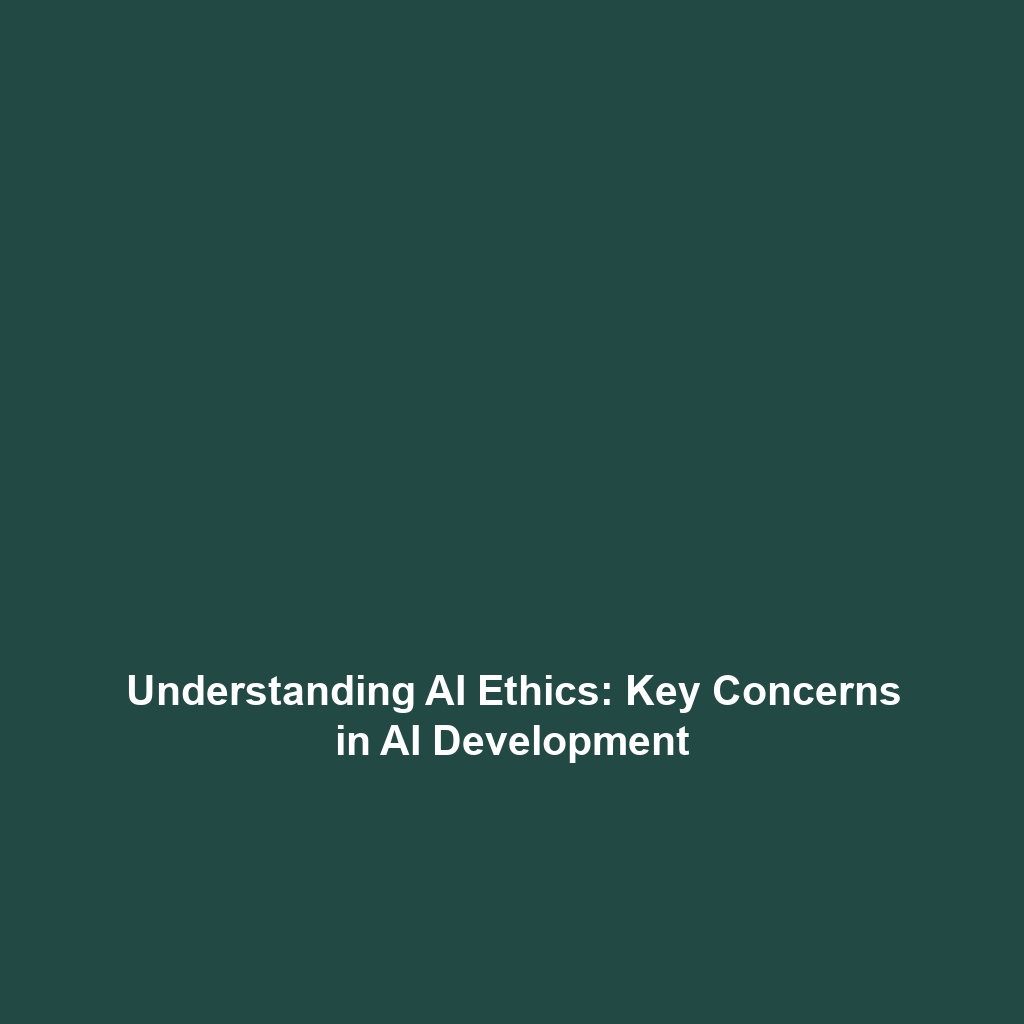AI Ethics in Humanoid Robot Development: Ensuring Responsible Innovation
Introduction
The intersection of artificial intelligence (AI) and robotics presents significant advancements, particularly in the realm of humanoid robots. As we venture deeper into humanoid robot development, AI ethics has emerged as a crucial focal point, ensuring responsible innovation. The implications of these innovations extend to various sectors, impacting society, economy, and human interaction. Addressing AI ethics is not merely a technical challenge; it is an ethical imperative that guides the future of humanoid robots, promoting trust and accountability. Ensuring ethical guidelines in this rapidly evolving field is essential for societal acceptance and the fruitful integration of these technologies.
Key Concepts
Understanding AI ethics in the context of humanoid robots involves several core concepts:
- Accountability: Defining ownership and responsibility for the actions of humanoid robots.
- Transparency: Emphasizing the understandability of the AI processes governing humanoid robots.
- Fairness: Ensuring unbiased decision-making by humanoid robots that interact with diverse human populations.
- Privacy: Protecting sensitive data collected and processed by humanoid robots during user interactions.
These principles fit into the broader category of humanoid robots by guiding developers to integrate ethical standards throughout the design and deployment phases. By focusing on responsible innovation, developers can implement these principles to enhance public trust in humanoid robots.
Applications and Real-World Uses
The applications of AI ethics in humanoid robot development manifest prominently in several fields:
- Healthcare: Humanoid robots serve as companions and assistive devices, requiring adherence to ethical standards for patient care and privacy.
- Customer Service: Many businesses deploy humanoid robots in service roles, necessitating fair treatment and transparent interaction protocols.
- Education: Humanoid robots are leveraged as tutors, highlighting the need for unbiased algorithms that cater to diverse learning needs.
These examples demonstrate how the principles of AI ethics can enhance humanoid robots in practical applications, ensuring safe and respectful interactions.
Current Challenges
Despite advancements, several challenges persist in implementing AI ethics in humanoid robots:
- Lack of standardized regulations governing ethical practices.
- Difficulty in achieving fully transparent algorithmic processes.
- Challenges in ensuring unbiased AI decision-making across diverse cultural contexts.
- Concerns about data privacy amidst evolving AI capabilities.
Identifying and addressing these challenges of AI ethics is crucial for the ethical development of humanoid robots.
Future Research and Innovations
Looking forward, the landscape of AI ethics in humanoid robotics will see exciting advancements. Key areas of research include:
- Development of AI systems equipped with advanced transparency features.
- Integration of ethical decision-making frameworks in robot algorithms.
- Innovations in privacy-preserving technologies to protect user data.
Such breakthroughs promise not only improved functionality of humanoid robots but also bolster confidence in their use within various sectors.
Conclusion
AI ethics in humanoid robot development is pivotal for ensuring responsible innovation that aligns technological progress with societal values. As the field continues to evolve, maintaining ethical standards will facilitate the integration of humanoid robots into everyday life. Stakeholders—including developers, policymakers, and the public—must engage in ongoing dialogue to navigate this complex landscape. For further exploration, consider reading about related topics like robot ethics and AI transparency.



